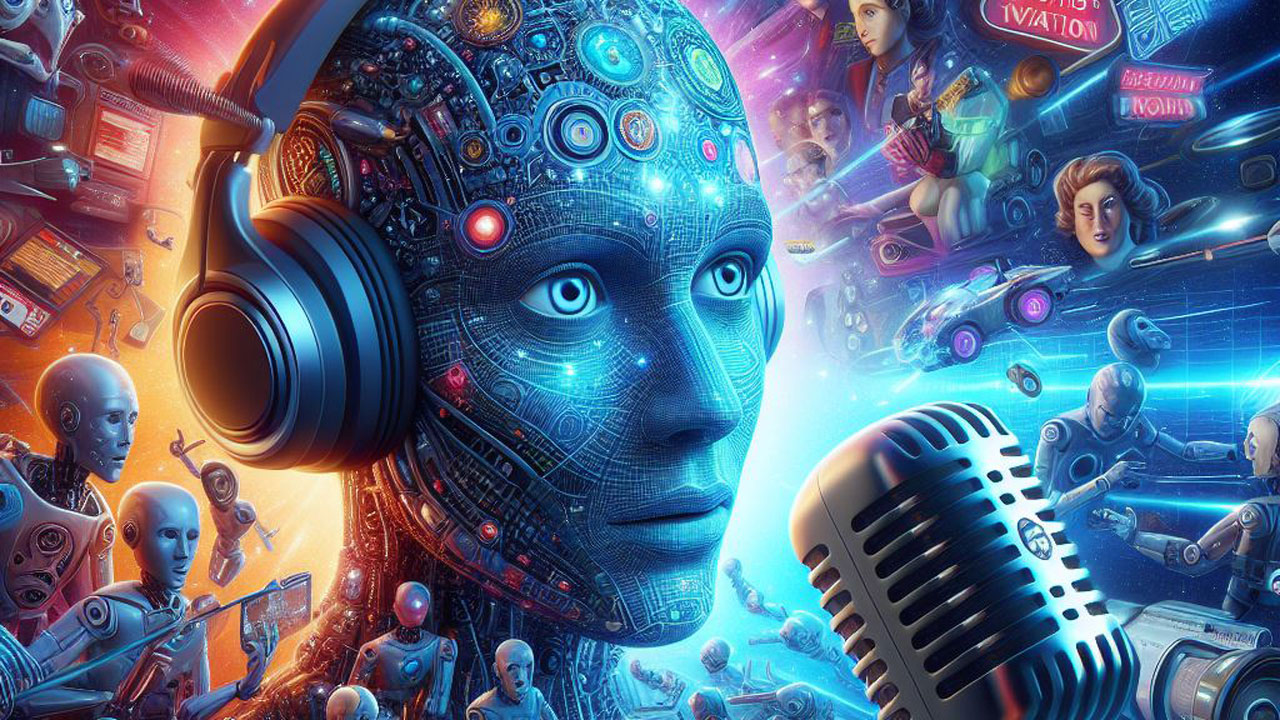AI has become ubiquitous in the entertainment industry. One intriguing area where AI is making a significant impact is voice narration and characterization. As technology advances, AI voices become more sophisticated, offering new possibilities and challenges for creators. In this article, we want to evaluate AI voices in entertainment. So, stay tuned!
AI Voices in Entertainment: Transforming Narration Dynamics
Traditional narration in films, audiobooks, and video games has often relied on human actors to bring stories to life. However, AI voices are now changing the dynamics of narration. Advanced AI algorithms power text-to-speech (TTS) technology to convert written text into highly realistic spoken words. This opens up opportunities for faster content production and more flexibility in storytelling.
AI narrators are not bound by the constraints of human limitations, enabling creators to experiment with different tones, styles, and languages effortlessly. This shift in narration dynamics can lead to more diverse and inclusive storytelling, as AI voices can represent various accents, languages, and vocal characteristics.
Accessibility and Inclusivity
One of the critical advantages of AI voices is the potential for enhanced accessibility and inclusivity in entertainment. AI plays a significant role in breaking down language barriers and ensuring accessibility to content for a global audience, with the ability to generate voices that cater to different linguistic backgrounds and accessibility needs.
Moreover, AI-powered narration can be a game-changer for individuals with visual impairments. Screen readers leveraging AI voices in entertainment can provide a richer and more immersive experience for those consuming written content. This marks a significant step towards making entertainment more inclusive and accommodating diverse audiences.
Redefining Characterization
In addition to narration, AI redefines how characters are brought to life. Conversational AI and virtual assistants have become integral parts of our daily interactions, and the technology behind them is evolving rapidly. This evolution extends to entertainment, where AI-driven characters are gaining prominence.
AI-driven characters can adapt to user input, creating personalized and interactive experiences. For example, you can create an all-new character in social media using tiktok voice generator. This level of customization enhances immersion, making the audience feel more connected to the story. Moreover, AI characters can evolve, learning from user interactions and adjusting their behaviors accordingly.
Ethical Considerations in Character Design
The introduction of AI characters raises ethical questions about their design and behavior. Creators must distinguish between crafting characters that engage users and respecting boundaries. Striking a balance between creating compelling, interactive experiences and ensuring that AI characters adhere to ethical standards is essential for the responsible use of this technology.
However, the integration of AI characters also raises ethical questions. How much control should creators have over AI characters' decisions, and to what extent should AI reflect societal values? Achieving the perfect balance between creative freedom and responsible use of technology is crucial.
Challenges and Considerations
While the rise of AI voices in entertainment brings exciting possibilities, it also presents challenges. The uncanny valley, a concept in robotics and artificial intelligence, refers to people's discomfort when faced with a robot or AI that looks and acts almost human but not quite. Ensuring AI voices and characters avoid falling into this valley requires careful design and consideration.
Moreover, the ethical implications of AI-driven content creation must be addressed. Issues related to privacy, consent, and the responsible use of technology demand ongoing dialogue and guidelines within the industry.
The Future of AI Voices in Entertainment
As AI advances, its role in reshaping narration and characterization will only grow. Creators must embrace the opportunities presented by AI voices while remaining vigilant about the ethical considerations and potential pitfalls.
The fusion of creativity and technology has the potential to redefine storytelling in unprecedented ways. As we navigate this evolving landscape, it's essential to strike a balance that harnesses the power of AI while upholding the values and integrity of the entertainment industry.
Concluding Thoughts
AI voices are not merely tools for content creation; they are catalysts for innovation and transformation in entertainment. The journey into the future of narration and characterization is one where human creativity collaborates with artificial intelligence, opening doors to uncharted realms of storytelling. The challenge lies in navigating this unexplored territory responsibly, ensuring that AI enhances, rather than diminishes, the magic of storytelling.

